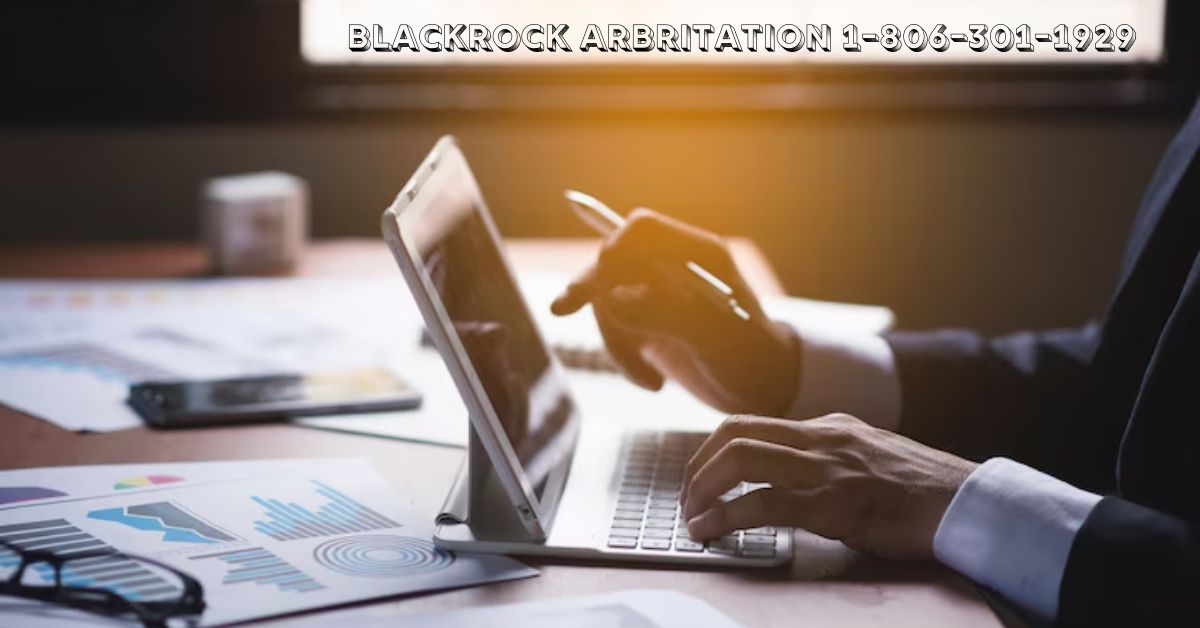Contents
- 1 What Is BlackRock Arbritation 1-806-301-1929?
- 2 The Role of Arbitration in the Financial World
- 3 Why Are People Talking About 1-806-301-1929?
- 4 BlackRock’s Influence in the Global Market
- 5 The Potential Impact on Investors
- 6 Understanding the Legal Process Behind Arbitration
- 7 Why Is Arbitration Preferred Over Litigation?
- 8 BlackRock’s Commitment to Investor Protection
- 9 Key Takeaways About BlackRock Arbitration 1-806-301-1929
- 10 FAQs
In recent times, there’s been a surge of interest in BlackRock Arbitration 1-806-301-1929. This number has caught the attention of investors, legal professionals, and even casual observers due to its intriguing nature. But what exactly is BlackRock Arbritation 1-806-301-1929, and why are people talking about it? Let’s dive into the details to get a clearer picture.
What Is BlackRock Arbritation 1-806-301-1929?
BlackRock, one of the world’s largest asset management firms, is known for its significant influence in the financial markets. Arbitration, on the other hand, is a legal process used to resolve disputes outside the courts. In the context of BlackRock Arbitration, the number “1-806-301-1929” likely refers to a specific arbitration case or process tied to the firm. Arbitration is often chosen for its efficiency and confidentiality, so it’s no surprise that BlackRock might use it to resolve complex financial or investment-related issues.
The Role of Arbitration in the Financial World
Arbitration plays a critical role in the financial world, especially when disputes arise between investors, financial institutions, or corporations. For firms like BlackRock, arbitration offers a private method for resolving disagreements, avoiding lengthy and public court trials. The decision-making process in arbitration is typically faster and more flexible than in traditional legal proceedings, making it an attractive option for global investment firms.
Why Are People Talking About 1-806-301-1929?
The number “BlackRock Arbritation 1-806-301-1929” has generated considerable buzz for various reasons. Some speculate it could be linked to an ongoing legal case involving BlackRock, potentially involving large investors or contentious financial transactions. Others believe it could be a reference to an arbitration clause or provision embedded in BlackRock’s financial products, particularly those involving high-stakes deals.
Another possibility is that the number refers to a specific customer service line or contact related to arbitration claims. In any case, the presence of this number in discussions or forums could indicate growing interest or speculation surrounding an unresolved issue that involves BlackRock and arbitration.
BlackRock’s Influence in the Global Market
BlackRock’s influence in the global financial market cannot be understated. With trillions of dollars in assets under management, the firm is a key player in everything from stock investments to real estate to corporate governance. As such, any legal or arbitration-related matters involving BlackRock are bound to attract significant attention, especially if they have the potential to impact the broader market.
Given its size and prominence, BlackRock is frequently involved in high-profile cases, including disputes over investment strategies, asset management practices, and corporate mergers and acquisitions. These kinds of disputes often result in arbitration, where private hearings and neutral arbitrators decide the outcome.
The Potential Impact on Investors
For investors, particularly those holding shares or bonds in funds managed by BlackRock, understanding how the firm handles legal disputes is crucial. If BlackRock were to be involved in arbitration related to a particular fund or investment, it could have consequences for the fund’s performance, liquidity, and overall investor returns.
Investors should also be aware of the potential for arbitration to delay decisions or outcomes related to their investments. While arbitration is usually faster than court proceedings, it can still have a significant impact on the timelines and strategies of investment firms.
Understanding the Legal Process Behind Arbitration
Arbitration is often seen as a faster and more private alternative to traditional litigation. When a dispute arises, both parties involved in the arbitration process agree to resolve their differences outside of a courtroom, with a neutral third party acting as the arbitrator. The arbitrator’s role is to listen to both sides, consider the evidence, and render a final decision.
In many cases, the decision of the arbitrator is binding, meaning it cannot be appealed, which gives the arbitration process a sense of finality that is often desirable in financial disputes. This also makes it a powerful tool for resolving complex and often contentious issues that might otherwise drag on in a public court system.
Why Is Arbitration Preferred Over Litigation?
Arbitration is often preferred over litigation for several reasons:
- Confidentiality: The arbitration process is private, which means sensitive information and trade secrets are less likely to be exposed.
- Cost-Effectiveness: Litigation can be expensive, especially for large firms like BlackRock. Arbitration typically involves lower legal fees.
- Speed: Arbitration is often quicker than litigation, which is critical when financial markets are involved.
- Flexibility: The arbitration process can be tailored to the needs of the parties involved, making it a flexible and efficient option for resolving disputes.
BlackRock’s Commitment to Investor Protection
BlackRock has long been committed to ensuring that its investors are protected through sound financial practices, transparency, and effective dispute resolution mechanisms. The firm regularly engages in arbitration to settle disputes, particularly when it comes to investor claims or disagreements over financial products.
For investors, knowing that BlackRock employs arbitration helps reassure them that any disputes will be handled efficiently and fairly, without dragging on in the public court system.
Key Takeaways About BlackRock Arbitration 1-806-301-1929
- BlackRock’s Use of Arbitration: BlackRock frequently uses arbitration as a tool for resolving disputes involving investments or other financial issues.
- Potential Legal Impact: Any arbitration process involving BlackRock has the potential to affect investors, especially if it involves large financial products or decisions.
- Confidential and Efficient Process: Arbitration offers a confidential and cost-effective way for BlackRock to handle disputes, preserving the integrity of its business and investor interests.
- Investor Awareness: Investors should stay informed about arbitration proceedings and how they may impact their portfolios or investments.
While the number “BlackRock Arbritation 1-806-301-1929” may seem like a mystery, it could point to a significant arbitration case that has broader implications for BlackRock and its investors. As the company continues to play a crucial role in the global financial market, any legal proceedings it engages in are bound to attract attention. Understanding the arbitration process and its potential impact on investments is essential for both current and future investors in BlackRock-managed funds.
FAQs
Why does BlackRock Arbritation 1-806-301-1929 instead of litigation?
Arbitration offers faster, more confidential, and less expensive resolutions compared to traditional court cases, making it ideal for large financial firms.
Could BlackRock’s arbitration process affect my investments?
Yes, if the arbitration involves funds or financial products that you are invested in, it could have an impact on their performance or outcome.
How does arbitration benefit investors?
Arbitration offers a quicker, more private, and cost-effective way of resolving disputes, ensuring that investments are not tied up in prolonged legal proceedings.
Where can I learn more about BlackRock’s arbitration processes?
To stay updated on BlackRock’s arbitration proceedings, you can follow news reports, legal filings, or consult directly with the firm if you are an investor.











